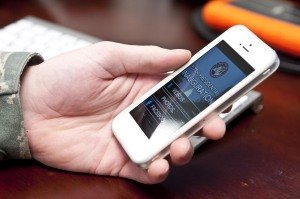Are you addicted to texting and using your cellphone? Research shows that the number of people experiencing cell phone addiction is increasing globally. This addiction can manifest through various signs, including the following:
Signs of Cell Phone Addiction
- Feeling anxious when your cellphone is not nearby. People addicted to their phones experience “separation anxiety” when they cannot use their device for long periods. This feeling may also arise when the phone is low on battery, out of charge, or has no load.
- Constantly using your cellphone even when surrounded by others. Instead of engaging with people around you, you focus on your phone, isolating yourself socially.
- Inability to perform tasks without checking your phone. Whether you are working, eating, or doing daily chores, you feel the urge to frequently look at your phone.
- Waking up and falling asleep with your eyes on your cellphone. Checking your phone is often the first thing you do in the morning and the last thing before going to sleep.
- Bringing your cellphone everywhere – even to the bathroom. You feel the need to have your phone with you at all times, regardless of location or situation.
- Staring at your phone aimlessly. You often find yourself staring at the screen without texting, calling, or performing any particular activity.
Effects of Cell Phone Addiction
Cell phone addiction can have several undesirable effects, such as:
- Vision problems. Prolonged screen time can cause eye strain and blurred vision.
- Hand and neck pain. Constant phone use often leads to repetitive strain injuries, such as “text neck” and carpal tunnel syndrome.
- Reduced productivity. Excessive phone use can interfere with work or school responsibilities.
- Strained relationships. Being preoccupied with your phone can lead to neglect of family, friends, and social connections.
Steps to Prevent Cell Phone Addiction

If you recognize these signs, it’s essential to take proactive steps to avoid becoming overly dependent on your cellphone. Here are some tips:
- Take breaks. Dedicate at least one day a week or a month when you don’t use your cellphone. This “digital detox” can help reset your habits.
- Avoid using your phone in social settings. During gatherings with family, friends, or loved ones, put your phone on silent mode or turn it off to avoid distractions.
- Set a usage schedule. Create phone-free hours, such as avoiding phone use after 10 PM, to allow yourself time to relax and rest without digital interruptions.
- Find other activities to enjoy. Engage in hobbies that benefit your health and well-being, such as playing sports, exercising, reading books, or spending quality time talking with loved ones.
Cell phones have become an integral part of our daily lives, but as the saying goes, “too much of anything can’t be good.” It’s essential to find balance, set limits, and ensure that your phone use does not negatively affect your health, relationships, or productivity. By taking control of your habits, you can enjoy the benefits of technology without letting it take over your life.


